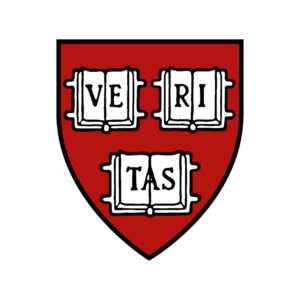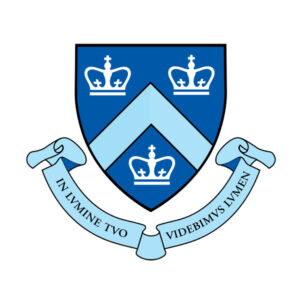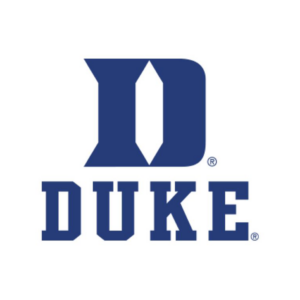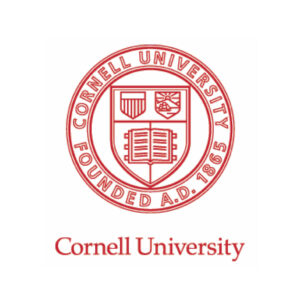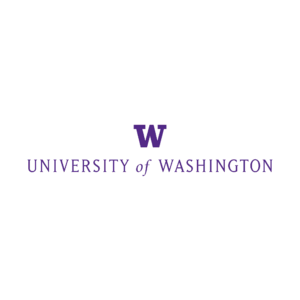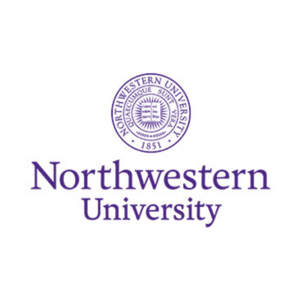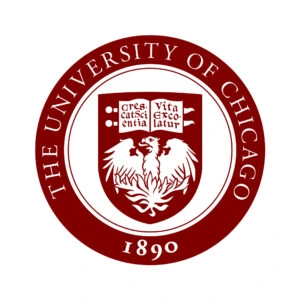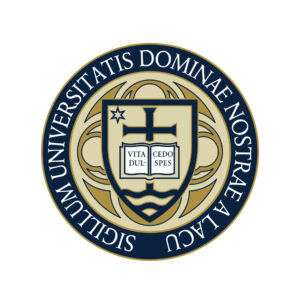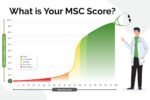
If you want a career in healthcare, it’s never too early to start looking at your options for college. There are many pre-med programs to look at and several factors to consider when you search for the best college as a pre-medical student.
A great pre-med program offers a quality education, plenty of resources for students planning for a career in medicine, like research and hands-on clinical experience, and the ability for a student to maintain a high GPA. It also exposes students to soft-skills that are essential for being a good physician.
Here’s our list of the best colleges — ivy league or not — to prepare you for med school.
1. Harvard University
Boston, MA
Acceptance rate: 5%
Avg ACT score: 33
Avg SAT score: 1476
Application deadline: Jan 1st
Application fee: $85
Tuition: $52,659
Acceptance Rate for Undergrads/Alumni Applying to Medical School: 93%
Harvard has a pre-med advising program and assigns tutors and mentors from sophomore through senior year. They also have exceptional biological science departments. Harvard’s proximity to hospitals and medical centers means ample clinical and research opportunities.
It also doesn’t hurt that Harvard’s medical school has dominated university rankings for years.
Learn about our shadowing program to maximize your medical school chances.
2. Columbia University
New York, NY
Acceptance rate: 6%
Avg ACT score: 33
Avg SAT score: 1510
Application deadline: Jan 1st
Application fee: $85
Tuition: $62,570
Acceptance Rate for Undergrads/Alumni Applying to Medical School: 91%
Columbia’s pre-med students receive an education curriculum that meets the requirements for most medical schools. In addition, Columbia’s Premedical Committee sponsors informational meetings for pre-med students.
3. Yale University
New Haven, CT
Acceptance rate: 6%
Avg ACT score: 33
Avg SAT score: 1484
Application deadline: Jan 1st
Application fee: $80
Tuition: $43,543
Acceptance Rate for Undergrads/Alumni Applying to Medical School: 86%
4. Duke University
Durham, NC
Acceptance rate: 11%
Avg ACT score: 33
Avg SAT score: 1475
Application deadline: Jan 3rd
Application fee: $100
Tuition: $62,941
Acceptance Rate for Undergrads/Alumni Applying to Medical School: 85%
Duke offers many options for pre-med students, including health-centered study abroad programs and research experiences. Duke University Medical School is one of the top med schools in the US, so it’s not surprising they have a handle on how to support future medical students.
5. Boston University
Boston, MA
Acceptance rate: 29%
Avg ACT score: 30
Avg SAT score: 1316
Application deadline: Jan 2nd
Application fee: $80
Tuition: $29,154
Acceptance Rate for Undergrads/Alumni Applying to Medical School: 80%
Boston University provides pre-health advising for multiple health-related fields. Their Pre-Professional Advising Office also organizes meetings for pre-med students throughout their undergrad years. BU students receive help setting professional goals, meeting med school requirements, and navigating the entire medical school application process.
6. University of Pennsylvania
Philadelphia, PA
Acceptance rate: 9%
Avg ACT score: 33
Avg SAT score: 1463
Application deadline: Jan 5th
Application fee: $75
Tuition: $56,212
Acceptance Rate for Undergrads/Alumni Applying to Medical School: 78%
UPenn is home to one of the top medical schools — the Perelman School of Medicine — meaning loads of research opportunities for undergrads. Several of UPenn’s majors offer pre-med focus options as well.
7. Cornell University
Ithica, NY
Acceptance rate: 14%
Avg ACT score: 32
Avg SAT score: 1424
Application deadline: Jan 1st
Application fee: $80
Tuition: $41,958 in-state, $62,456 out-of-state
Acceptance Rate for Undergrads/Alumni Applying to Medical School: 76%
Cornell recently launched its Health Professions Advising Center to provide resources and community support for students preparing for careers in the medical field. This includes resources for honing in on the exact career you want and help in figuring out the steps to take to get there.
8. Johns Hopkins University
Baltimore, MD
Acceptance rate: 12%
Avg ACT score: 33
Avg SAT score: 1475
Application deadline: Jan 1st
Application fee: $70
Tuition: $25,241
Acceptance Rate for Undergrads/Alumni Applying to Medical School: 70%
Home to one of the best medical schools in the US, Johns Hopkins provides plenty of clinical and research experience opportunities for premeds. The advising track at Johns Hopkins involves individual and group appointments, special events, and programs geared toward pre-med student success.
9. Georgetown University
Washington, DC
Acceptance rate: 17%
Avg ACT score: 32
Avg SAT score: 1406
Application deadline: Jan 10th
Application fee: $75
Tuition: $30,710
Acceptance Rate for Undergrads/Alumni Applying to Medical School: 75-80%
Georgetown is home to one of the nation’s top medical schools. This makes it even more interesting that Georgetown offers the assurance of admission to high-performing students at the end of their sophomore year. You read that right — if you perform well during your undergrad years, you can step right into Georgetown University School of Medicine without taking the MCAT.
10. University of North Carolina — Chapel Hill
Chapel Hill, NC
Acceptance rate: 27%
Avg ACT score: 29
Avg SAT score: 1288
Application deadline: Jan 15th
Application fee: $85
Tuition: $7,019 in-state, $34,198 out-of-state
Acceptance Rate for Undergrads/Alumni Applying to Medical School: 90%
UNC-Chapel Hill offers Specialized Training Tracks for several disciplines in medicine, particularly research related. They also offer a 9-week intensive program for students who lacked opportunities for pre-med study or who want to reaffirm their desire to pursue a medical career.
Improve your chances of being considered for medical schools with our Virtual Clinical Education program.
11. Stanford University
Stanford, CA
Acceptance rate: 5%
Avg ACT score: 33
Avg SAT score: 1455
Application deadline: Jan 3rd
Application fee: $90
Tuition: $56,169
Acceptance Rate for Undergrads/Alumni Applying to Medical School: 75%
The Stanford Pre-Medical Association ensures that pre-med students have the resources and opportunities they need for success. Pre-med advisors are available to help you plan coursework, discuss options, set goals, and find internships.
12. University of Washington
Seattle, WA
Acceptance rate: 45%
Avg ACT score: 28
Avg SAT score: 1241
Application deadline: Nov 15th
Application fee: $85
Tuition: $57,592
Acceptance Rate for Undergrads/Alumni Applying to Medical School: Not published
UW is one of the best state universities for pre-medical education. Career coaches are available to help students navigate course selection, shadowing, and research opportunities. Premed students at UW collaborate with UW Medicine and have ample research and volunteer opportunities.
13. Northwestern University
Evanston, IL
Acceptance rate: 9%
Avg ACT score: 34
Avg SAT score: 1495
Application deadline: Jan 2nd
Application fee: $75
Tuition: $28,344
Acceptance Rate for Undergrads/Alumni Applying to Medical School: 80%
Northwestern’s Health Professions Advising Office provides many resources for pre-med students of multiple disciplines. Not only will they help students with coursework and extracurriculars, but they also host workshops and events. Northwestern also boasts an impressive medical school to boot.
14. University of Chicago
Chicago, IL
Acceptance rate: 7%
Avg ACT score: 34
Avg SAT score: 1540
Application deadline: Jan 3rd
Application fee: $75; fee waived for students applying for need-based financial aid
Tuition: $62,241
Acceptance Rate for Undergrads/Alumni Applying to Medical School: 82%
The University of Chicago offers unique cohort-based programs for students to explore career options and gain first-hand experience early on in their education. Programs vary from 5 weeks to a full year and are available independently or in addition to typical coursework.
15. University of Notre Dame
Notre Dame, IN
Acceptance rate: 19%
Avg ACT score: 34
Avg SAT score: 1475
Application deadline: Jan 1st
Application fee: $75
Tuition: 60,301
Acceptance Rate for Undergrads/Alumni Applying to Medical School: 84%
Notre Dame offers the unique Arts and Letters pre-health supplementary major. Students are encouraged to study arts and humanities in conjunction with the typical pre-med science courses. This is a refreshing approach to the pre-med tracks often geared towards math and science-heavy majors like biology or engineering.
Join Virtual Clinical Education at MedSchoolCoach to stand out on your medical school application.
Factors to Consider When Choosing a Pre-Med Program
We’ve listed some top-notch schools for pre-med studies, but know that plenty of other great pre-med programs are available. At the end of the day, choose the institution that works best for you.
- Faculty to student ratio. This will impact you when you need letters of recommendation to get into medical school. If you’re in classes with 100s of other students and don’t foster relationships with professors, you’ll end up with generic, fill-in-the-blank letters.
- Financial aid. Almost 84% of undergrad students use some form of financial aid, be it federal, state, or institutional. If you need financial assistance, see if the school you’re interested in offers it.
- Student body satisfaction. Check college review pages. With minimal effort, you can see how happy previous students were with their experience.
- Study abroad opportunities. Being a physician involves being a care-taker of people of all different backgrounds. Study abroad and global internships, such as Global Medical Brigades, are great ways to gain experience, improve your application and become a better person. Look for these opportunities at pre-med programs.
- MCAT preparation. Every pre-med knows the MCAT is an important part of the medical school application process. Some schools can help students by having MCAT preparation partnerships.
- Extracurriculars, especially research and clinical opportunities. Just like the right high school extracurricular activity looks great on a college application, you want great pre-med extracurricular activities on your med school application. These might include research opportunities, shadowing health professionals, or internships in the health science field.
About Medical School Acceptance Rates
Should you look at published acceptance rates? It doesn’t hurt to look at published acceptance rates, but they can be misleading. Of course, you want to go to a school that promises their pre-med track will usher you into medical school. However, you should not enroll in an undergraduate program based on their self-reported success rate.
Many schools publish their students’ acceptance rates, don’t tell the whole truth with these numbers. There may be students who weren’t supported through the medical school admissions process because of their grades or MCAT, and the school won’t count these students in their numbers. Bottom line: you want to ensure you know the whole story.
That said, the schools listed above, and many others, including non-ivy schools, have fabulous pre-med programs that can set you up for success.
Pre-Med Courses
You can be a pre-med from any undergraduate school in the country. While the term “pre-med” gives you a clear idea of where you want to end up, there’s plenty of wiggle room with your undergrad coursework. Pre-med is not a major, but rather a set of prerequisite courses for med school.
Undergraduate students can choose any major if they meet pre-med requirements and maintain an exemplary GPA. That said, some schools, like the ones above, have well-defined paths for pre-professionals, particularly pre-med students.
What is the best pre-med major? The best pre-med major is the one you’re passionate about. While many pre-med students opt for medicine-adjacent majors — biology, chemistry, psychology — you can be a pre-med liberal arts major if you desire as long as you take the necessary prerequisites.
Required courses vary by medical school, but these pre-medicine courses are a good starting point:
- Biology with lab
- Biochemistry
- Chemistry with lab
- Organic chemistry with lab
- Physics with lab
- Calculus
- Statistics
- College English
- Behavioral science (psychology, sociology, anthropology, etc.)
This is a standard set of requirements. Your pre-med advisor will help you plan your courses and offer mentorship to prepare you for your medical education. The good news is, provided the school has a strong biological science department, you can take the courses you need just about anywhere.
Get Help From the Experts
MedSchoolCoach can help you — our advisors work with you to find the right pre-med program and tailor a plan to get you from high school all the way through medical school. Schedule a meeting with an enrollment advisor now!
Read next:
Premedical Advice from an Expert: How to Find the Right School | MedSchoolCoach
Top 5 Reasons to Hire a Pre-Med Advising Service | MedSchoolCoach
How Can a Pre-Med Standout? We Ask Dr. Butty | MedSchoolCoach

Renee Marinelli, MD
Dr. Marinelli has practiced family medicine, served on the University of California Admissions Committee, and has helped hundreds of students get into medical school. She spearheads a team of physician advisors who guide MedSchoolCoach students.
